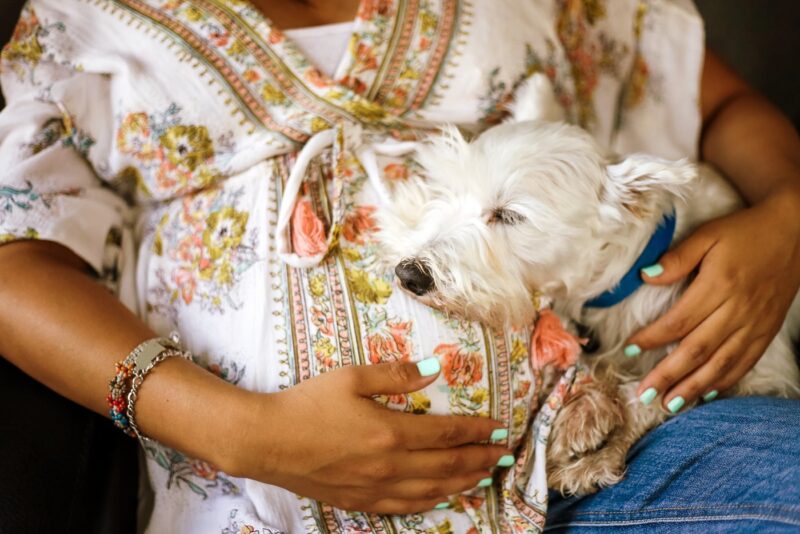The next time your favorite furry four-legged friend brings you the leash, take the hint and go for a walk — especially if you’re expecting.
In fact, your dog can be very helpful as a fitness buddy throughout your pregnancy, which means good things for both of you.
Dog-walking can help expectant mamas get enough exercise
Collaborative research from the Waltham Centre for Pet Nutrition and the University of Liverpool in England has shown that pregnant women who own dogs are more physically active than those who don’t.
Researchers found that, through brisk walking, pregnant women who owned dogs were approximately 50% more likely to achieve the recommended 30 minutes activity per day.
The study looked at more than 11,000 pregnant women in the UK using data from the Avon Longitudinal Study of Parents and Children (ALSPAC), and was the first of its kind to look specifically at the effects of dog ownership on activity levels during pregnancy.
There is growing concern surrounding the health risks of excessive weight gain during pregnancy. Previous studies have shown that maternal obesity can lead to an increased risk of a range of health complications, and may even be linked to childhood obesity.
This has led to recommendations that pregnant women, and those considering pregnancy, should take steps to manage their weight and ensure regular exercise under guidance from their healthcare provider.

Help manage weight gain during pregnancy
By helping pregnant women stay active, dog walking could form part of an effective strategy for managing weight gain during pregnancy.
“We are increasingly seeing that exercising with a dog can lead to improved motivation and effectiveness,” says Dr Sandra McCune, research program manager at Waltham.
“As a low-risk exercise, dog walking can help women — who may otherwise find it hard to meet their exercise targets — keep active and fit during pregnancy,” Dr McCune says. “Together with a balanced diet, it could therefore help towards ensuring a healthy pregnancy.”
Dog owners much more likely to get adequate exercise
The study of more than 11,000 pregnant women, in partnership with Mars Petcare, showed that those who owned dogs were approximately 50% more likely to achieve the recommended 30 minutes of exercise a day through high levels of brisk walking than those without dogs.
Recommended exercise during pregnancy includes walking, hiking, jogging and swimming, but many women prefer walking as their primary means of exercise.
In the first study to investigate whether dog walking could help promote exercise in pregnant women, the science suggested that as it is a low-risk exercise, walking a dog could form part of a broader strategy to improve the health of pregnant women.
Healthy habits, but no guarantee
Findings suggest that ownership of a dog provides some motivation to go for a walk, even during pregnancy.
Dr Carri Westgarth, from the University’s Institute of Infection and Global Health, says, “We found that owning one or more dogs was associated with pregnant women taking part in brisk walking on a regular basis, helping them to achieve the recommended 150 minutes of activity a week.”
“We believe that owning a pet, and taking care of it properly, is hugely positive for the mental and physical well-being of the owner,” says Dr Sandra McCune, Research Program Manager at Mars Petcare.
“Dog walking can form part of a healthy lifestyle for pregnant women, who may otherwise find it difficult to meet their exercise objectives.”
This 2012 research was published in PLoS ONE, and is available here. The study was conducted in collaboration with the Universities of Liverpool & Bristol (UK) and University of South Carolina (USA) and used data from the Avon Longitudinal Study of Parents and Children (ALSPAC).





